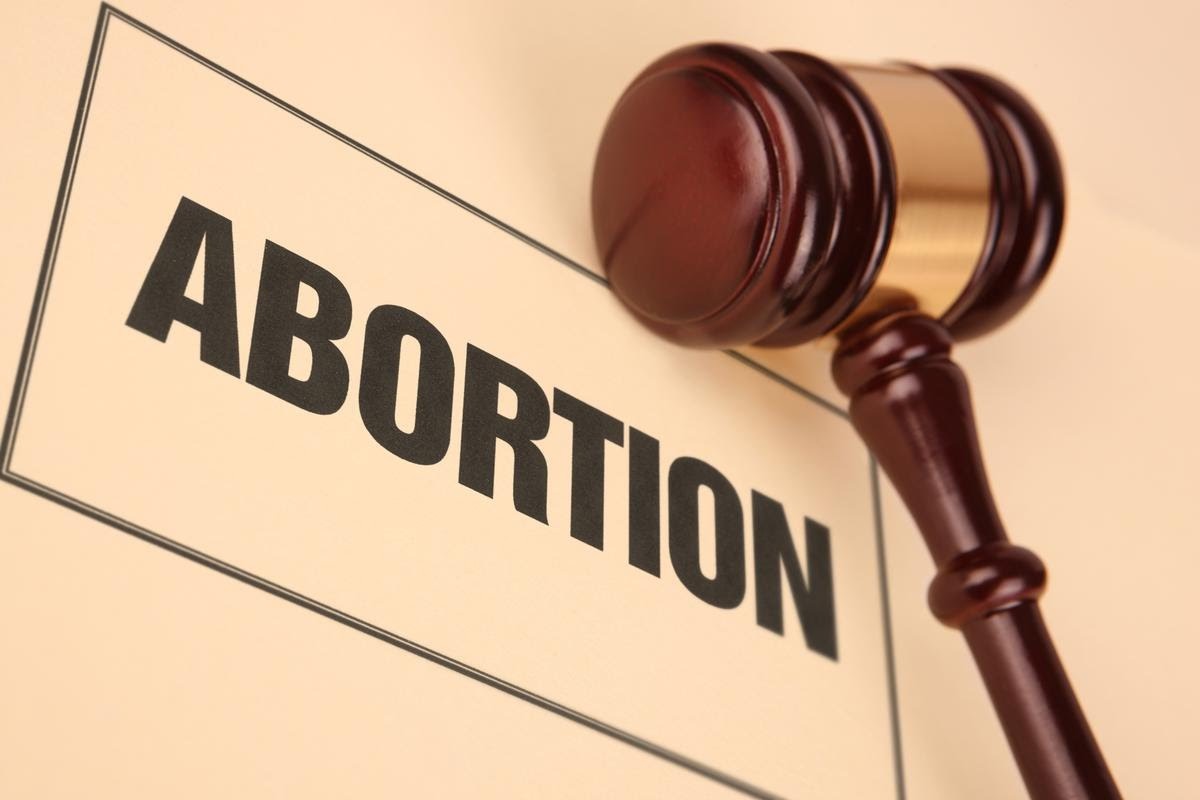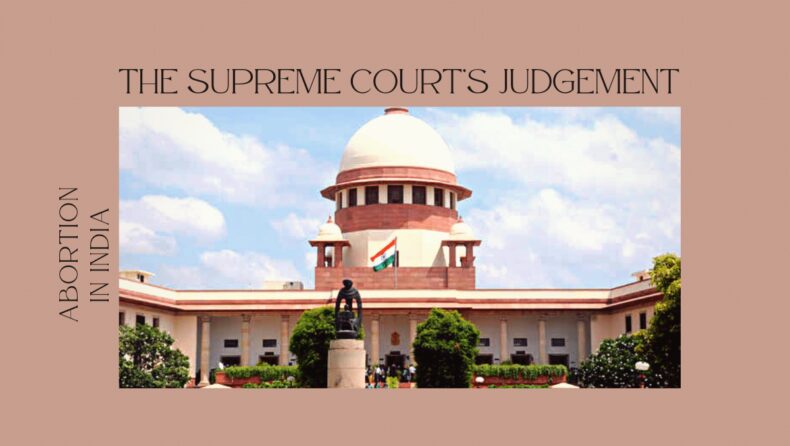The Supreme Court’s recent judgment allowing unmarried women to seek a safe and legal abortion under the MTP Act is valuable to enhance the right to autonomy in India.
“For women to freely enjoy their rights, they must have autonomy”, according to Justice Chandrachud, as quoted by LiveLaw.
Quoted by LiveLaw.
The abortion judgement made by Supreme Court emphasised the state’s duty to ensure access to abortions and made it clear that the state does not grant abortions as a privilege but simply governs them, thereby strengthening the right to autonomy in India.
Abortion in India: Supreme Court’s judgment that strengthens the Right to Autonomy

The Supreme Court gave its justifications for permitting an unmarried woman to end her pregnancy within the 20–24 week window specified by Section 3(2)(b) of the Medical Termination of Pregnancy Act (the “MTP Act”) earlier this week. The court ruled that unmarried women must be included under the interpretation of Rule 3B of the MTP Rules, which lists the groups of women who may seek an abortion after 20 weeks, as to exclude them would violate equality.
The foundation of Fundamental Rights is the right to individual autonomy, which is rooted in the integrity of every persona and is the very essence of freedom. It includes the power to make choices about matters that are intrinsic to our personalities in private, free from the scrutiny of the government and society.
Ideally, an abortion should take place in this space of privacy. But to guarantee access to safe abortions, the state wants to regulate abortions. As a result, abortions become contingent on medical professionals rather than just a woman’s choice. According to Section 3 of the MTP Act, doctors must assess if the pregnancy “involves a risk to the pregnant woman’s life or of significant injury to her bodily or mental health,” among other things.
The inadequacy of guidance needs to be taken into consideration when deciding on whether or not to approve of aborti In case of disagreement by a medical practitioner, women face distress in disputing this decision and are often compelled to lay out private issues in court.
Courts have a variety of options for interpreting these laws. The court might, for instance, take the information given literally. Alternatively, it may examine what constitutional rights and principles are implicated by the statute or rule and interpret the law accordingly. Supreme Court, which based its choice on the rights to dignity and reproductive autonomy.
The court stated that a “constellation of freedoms is included in the right to reproductive autonomy and pointed out that “[t]he decision to have or not to have an abortion is borne out of complicated life circumstances, which only the woman can choose on her terms.” The court also stated that if women are forced to carry out their unintended pregnancies, “the state would be stripping them of the right to determine the immediate and long-term path their lives would take.”
According to the Medical Termination of Pregnancy (MTP) Act, all women, regardless of their marital standing, are entitled to safe and legal abortions up to 24 weeks of pregnancy.
The court further ruled that unmarried women have the same legal protections as married women in terms of their right to reproductive autonomy, according to the news source.
The supreme court declared that the distinction made by the abortion regulations among married and unmarried women is “artificial and constitutionally untenable” and supports the myth that only married women engage in sexual activity. And does not see a basis to exempt unmarried women to avail of the choice given in Section3(2)(b), stating that such a categorization would infringe equality, as this bigotry arises from “narrow patriarchal principles of what constitutes permissible sex”.
Abortion: The Law and barriers to the enactment

The Court also contemplated the mode in which underlying gender stereotypes along with institutionalised patriarchy affect the enactment of the law.
Since abortion is unlawful unless acceptable under the MTP Act, and requires a medical practitioner’s declaration, practitioners often ask for the consent of a partner or family due to the fear of persecution. The court advised against this exercise, as the law requires just the consent of the women.
The court also brought to notice the factors that prevent women from accessing safe and legal abortion. The stigma attached to the idea of abortion along with misinterpretation heeding to the illegality of unmarried women getting an abortion and the disdain for pregnancy of unmarried women is all the factors that deter women from seeking safe and legal abortions.
According to the court, a statutory phrase that affects the right to life and promotes reproductive freedom should be given the broadest interpretation possible. In this vein, and taking into account the aforementioned practical considerations, it advanced a broad interpretation of the phrase “damage to mental health,” which is a legal justification for abortion under Section 3.
Supreme Court on the judgment of abortion.
According to the court, an unintended pregnancy would be mental health damage, therefore “great emphasis ought to be given on each woman’s estimate as to whether she is in a condition to continue and bring her pregnancy to term.”
Last but not least, the court emphasised the state’s responsibility to ensure access to abortions, making it plain that this is not a luxury granted by the state but rather a matter of regulation. The court stated that “the government must make sure that authorised medical practitioners regard all patients fairly and sensitively” and that “treatment must not be refused based on one’s caste or because of the other socioeconomic and economic factors.”

The court was cognizant of how social inequalities manifest themselves in practice and explicitly states at the outset of the judgement that the term “women” refers to “persons besides cis-gender women who may need access to a safe medical termination of their pregnancies.” This is an example of how the judgement is remarkably advanced in its approach to deciding equality claims.
The court also ruled that “marital rape” would be an acceptable justification for getting an abortion past 20 weeks under Section 3(2)(b), as married women may also be rape survivors who need abortions but are unable to disclose or become aware of their pregnancies in time.
This is especially crucial because the Supreme Court is now hearing arguments over the constitutionality of the Indian Penal Code provision that exempts marital rape from getting prosecuted as a crime.













